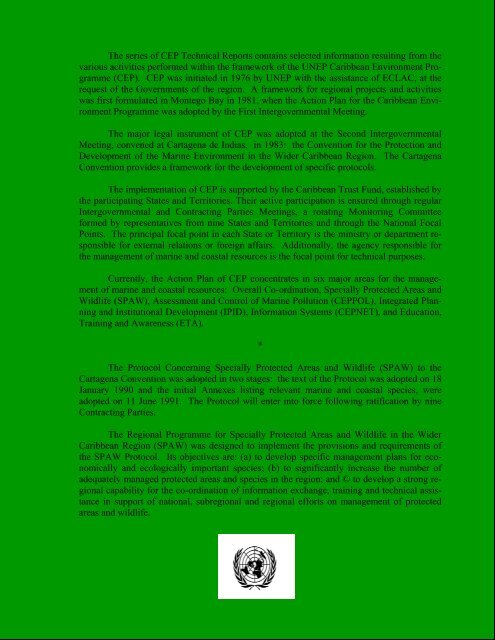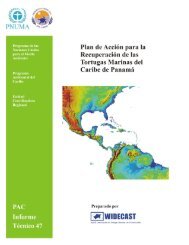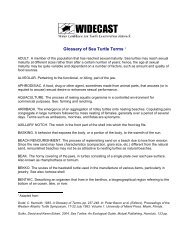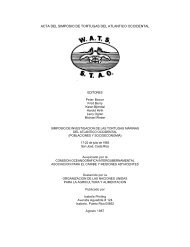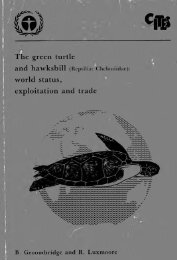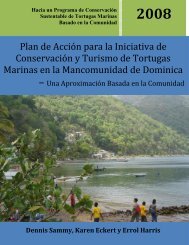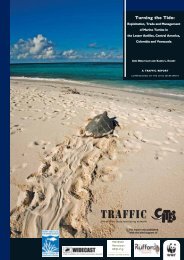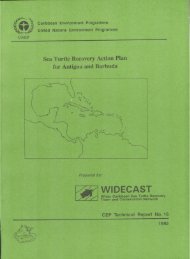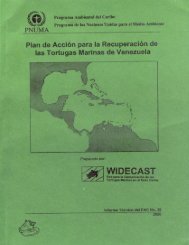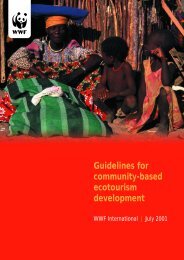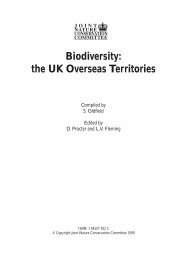Sea Turtle Recovery Action Plan for St. Kitts and Nevis - WIDECAST
Sea Turtle Recovery Action Plan for St. Kitts and Nevis - WIDECAST
Sea Turtle Recovery Action Plan for St. Kitts and Nevis - WIDECAST
Create successful ePaper yourself
Turn your PDF publications into a flip-book with our unique Google optimized e-Paper software.
The series of CEP Technical Reports contains selected in<strong>for</strong>mation resulting from the<br />
various activities per<strong>for</strong>med within the framework of the UNEP Caribbean Environment Programme<br />
(CEP). CEP was initiated in 1976 by UNEP with the assistance of ECLAC, at the<br />
request of the Governments of the region. A framework <strong>for</strong> regional projects <strong>and</strong> activities<br />
was first <strong>for</strong>mulated in Montego Bay in 1981, when the <strong>Action</strong> <strong>Plan</strong> <strong>for</strong> the Caribbean Environment<br />
Programme was adopted by the First Intergovernmental Meeting.<br />
The major legal instrument of CEP was adopted at the Second Intergovernmental<br />
Meeting, convened at Cartagena de Indias, in 1983: the Convention <strong>for</strong> the Protection <strong>and</strong><br />
Development of the Marine Environment in the Wider Caribbean Region. The Cartagena<br />
Convention provides a framework <strong>for</strong> the development of specific protocols.<br />
The implementation of CEP is supported by the Caribbean Trust Fund, established by<br />
the participating <strong>St</strong>ates <strong>and</strong> Territories. Their active participation is ensured through regular<br />
Intergovernmental <strong>and</strong> Contracting Parties Meetings, a rotating Monitoring Committee<br />
<strong>for</strong>med by representatives from nine <strong>St</strong>ates <strong>and</strong> Territories <strong>and</strong> through the National Focal<br />
Points. The principal focal point in each <strong>St</strong>ate or Territory is the ministry or department responsible<br />
<strong>for</strong> external relations or <strong>for</strong>eign affairs. Additionally, the agency responsible <strong>for</strong><br />
the management of marine <strong>and</strong> coastal resources is the focal point <strong>for</strong> technical purposes.<br />
Currently, the <strong>Action</strong> <strong>Plan</strong> of CEP concentrates in six major areas <strong>for</strong> the management<br />
of marine <strong>and</strong> coastal resources: Overall Co-ordination, Specially Protected Areas <strong>and</strong><br />
Wildlife (SPAW), Assessment <strong>and</strong> Control of Marine Pollution (CEPPOL), Integrated <strong>Plan</strong>ning<br />
<strong>and</strong> Institutional Development (IPID), In<strong>for</strong>mation Systems (CEPNET), <strong>and</strong> Education,<br />
Training <strong>and</strong> Awareness (ETA).<br />
*<br />
The Protocol Concerning Specially Protected Areas <strong>and</strong> Wildlife (SPAW) to the<br />
Cartagena Convention was adopted in two stages: the text of the Protocol was adopted on 18<br />
January 1990 <strong>and</strong> the initial Annexes listing relevant marine <strong>and</strong> coastal species, were<br />
adopted on 11 June 1991. The Protocol will enter into <strong>for</strong>ce following ratification by nine<br />
Contracting Parties.<br />
The Regional Programme <strong>for</strong> Specially Protected Areas <strong>and</strong> Wildlife in the Wider<br />
Caribbean Region (SPAW) was designed to implement the provisions <strong>and</strong> requirements of<br />
the SPAW Protocol. Its objectives are: (a) to develop specific management plans <strong>for</strong> economically<br />
<strong>and</strong> ecologically important species; (b) to significantly increase the number of<br />
adequately managed protected areas <strong>and</strong> species in the region; <strong>and</strong> © to develop a strong regional<br />
capability <strong>for</strong> the co-ordination of in<strong>for</strong>mation exchange, training <strong>and</strong> technical assistance<br />
in support of national, subregional <strong>and</strong> regional ef<strong>for</strong>ts on management of protected<br />
areas <strong>and</strong> wildlife.


